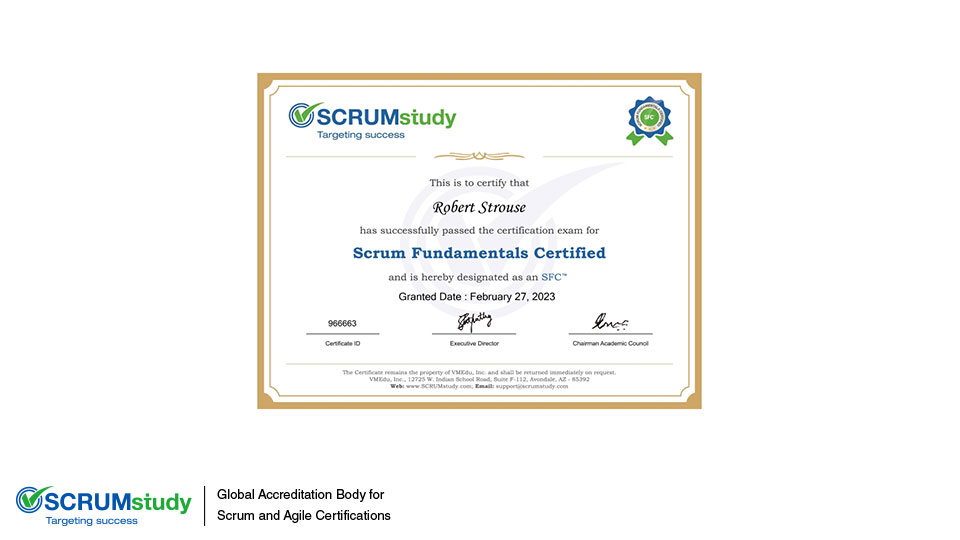Scrum Master Training Program Requirements
Posted by SCRUMstudy® on July 10, 2024
Categories: Agile Product Backlog SBOK® Guide Scrum Sprint Backlog
To attain Scrum Master certification, candidates need a solid understanding of Scrum principles and practices. They should complete Scrum training from an accredited provider and gain hands-on experience working in Scrum teams. Additionally, passing an online assessment is required to demonstrate proficiency in Scrum knowledge. This certification is ideal for individuals aspiring to lead Scrum teams effectively, guide organizations in adopting Scrum practices, and drive continuous improvement in Agile projects.
The Scrum Master Certification requires candidates to have a thorough understanding of Scrum principles and practices. This includes knowledge of key concepts such as iterative development, the roles and responsibilities within a Scrum team, and the importance of transparency, inspection, and adaptation. Candidates must also demonstrate proficiency in facilitating Scrum ceremonies, managing the product backlog, and ensuring that the team adheres to Scrum values and processes. Additionally, practical experience in applying Scrum in real-world projects is highly beneficial to meet the certification requirements effectively.
This program typically covers the principles and practices of Scrum, an agile framework for managing complex projects. Participants learn about Scrum roles, artifacts, events, and the core values and principles of agile methodologies. The certification process often includes a combination of coursework, hands-on exercises, and a final assessment to validate one's understanding and proficiency in applying Scrum practices. Scrum Master Certified (SMC) is recognized for its ability to enhance team collaboration, and productivity, and deliver high-quality projects in iterative cycles.
Scrum Master certification holds significant importance in the agile landscape as it validates individuals' proficiency in Scrum methodology. This certification demonstrates a thorough understanding of Scrum principles, roles, events, and artifacts, essential for effective project management. Employers often seek certified Scrum Masters to lead agile teams, drive organizational change, and ensure successful project delivery. Certification not only enhances job prospects but also signifies a commitment to continuous learning and professional development. Moreover, certified Scrum Masters contribute to building high-performing teams, fostering collaboration, and maximizing business value, making their role indispensable in today's dynamic and competitive business environment.

